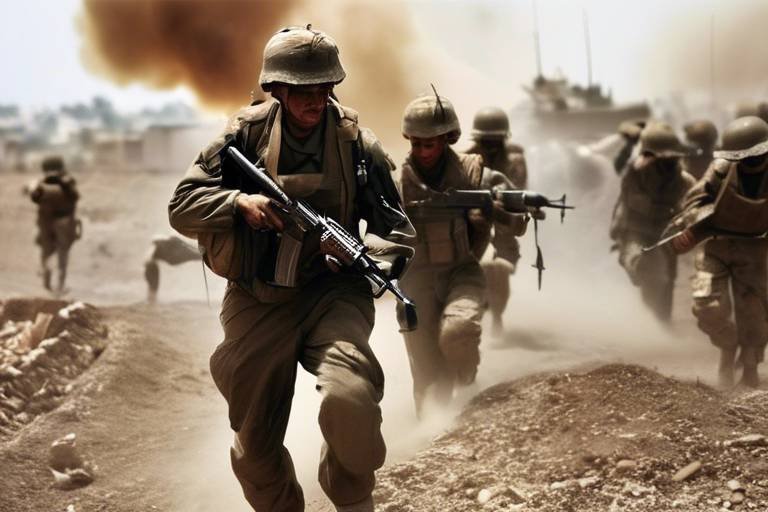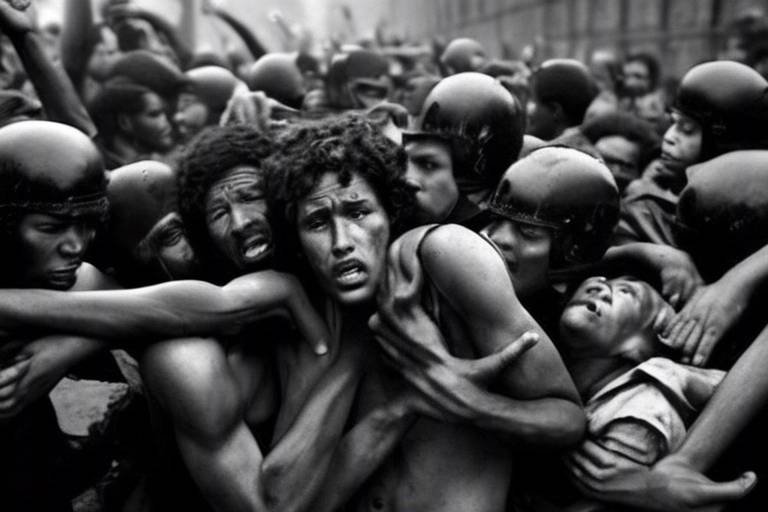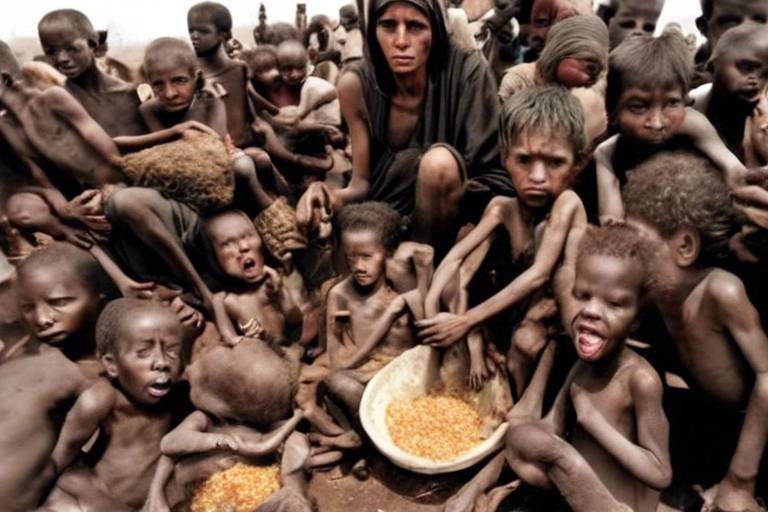The Social Ethics of Human Trafficking
Human trafficking is not just a crime; it is a profound violation of human rights that permeates every corner of our global society. It’s a modern-day slavery that exploits the most vulnerable among us, tearing apart families and communities while lining the pockets of traffickers. This article delves into the moral implications and societal responsibilities surrounding human trafficking, highlighting the ethical dilemmas, the roles of various stakeholders, and potential solutions to combat this global crisis. With over 40 million individuals trapped in this heinous system, it is crucial to understand not only the definition of human trafficking but also the ethical responsibilities we share in confronting this atrocity.
Understanding human trafficking is crucial to addressing its ethical implications. Human trafficking can be defined as the act of recruiting, transporting, transferring, harboring, or receiving a person through the use of force, fraud, or coercion for the purpose of exploitation. This exploitation can take many forms, including sexual exploitation, forced labor, and involuntary servitude. Victims can be men, women, and children from all walks of life, but certain demographics are disproportionately affected. Vulnerable populations, such as those living in poverty, migrants, and individuals lacking education or social support, are often targeted by traffickers.
Human trafficking presents numerous ethical dilemmas that challenge our moral compass. One of the most pressing issues is the exploitation of individuals who are often stripped of their autonomy and dignity. Consent becomes a murky concept when coercion and manipulation come into play. For instance, how can we truly say someone has consented to work in a brothel when they were lured there under false pretenses or threatened with violence? This raises profound ethical questions about agency and victimhood, forcing us to confront uncomfortable truths about our society.
Consent is a complex issue in human trafficking cases. Victims may believe they have willingly entered a situation, but the reality is often far more sinister. Traffickers are adept at creating scenarios where the illusion of choice is prevalent. They may promise a better life or a lucrative job, only to trap individuals in a cycle of abuse and exploitation. This manipulation complicates the moral landscape surrounding trafficking, as it forces us to reconsider our understanding of free will and personal agency.
Many victims believe they have chosen their paths, but socioeconomic factors create an illusion of choice that is hard to escape. Imagine being in a situation where your options are limited to a few dire choices. For someone living in poverty, the promise of a well-paying job in another country might seem like a golden ticket. However, once they arrive, they find themselves in a nightmare scenario, often facing violence and exploitation. This dynamic highlights the ethical responsibility of society to address the root causes of vulnerability that lead to trafficking.
Vulnerability plays a significant role in human trafficking. Factors like poverty, lack of education, and social instability create fertile ground for traffickers to exploit. For instance, children from impoverished backgrounds may be more susceptible to being lured away by promises of education or employment. The ethical implications are staggering—if society fails to provide adequate support and opportunities for these individuals, we are, in essence, complicit in the cycle of trafficking.
Society has a collective responsibility to combat human trafficking. This means that individuals, communities, and governments must come together to address the issue. Each of us has a role to play, whether it’s raising awareness, supporting anti-trafficking organizations, or advocating for stronger laws. The ethical obligations extend beyond mere awareness; they require action and commitment to creating an environment where trafficking cannot thrive.
Effective legislation is vital in the fight against human trafficking. Countries around the world are implementing laws to combat trafficking, but the effectiveness of these laws varies widely. Ethical considerations in creating policies that protect victims must be paramount. This includes ensuring that victims are treated with dignity and provided with the necessary support to rebuild their lives.
Human trafficking is a global issue requiring international collaboration. Countries must work together to combat trafficking and support victims across borders. The ethical necessity of this cooperation cannot be overstated; traffickers often exploit legal loopholes and jurisdictional gaps, making it essential for nations to unite in their efforts to eradicate this crime.
Law enforcement faces numerous challenges in addressing human trafficking. From lack of training to insufficient resources, the obstacles are daunting. Ethical implications arise when victims are treated as criminals rather than as individuals in need of help. Comprehensive training and resources are necessary to ensure that law enforcement can effectively combat trafficking while respecting the rights and dignity of victims.
Raising awareness and educating the public are crucial steps in combating human trafficking. Community engagement and education initiatives can play a significant role in prevention. By informing individuals about the signs of trafficking and how to report it, we empower communities to take action and protect their most vulnerable members.
Empowerment is key to preventing human trafficking. Ethical approaches to strengthening vulnerable communities through education and economic opportunities can make a significant difference. When individuals have access to resources and support, they are less likely to fall prey to traffickers.
NGOs play a vital role in addressing human trafficking. They provide essential services, raise awareness, and advocate for policy changes. The ethical considerations in their work are significant, as they must navigate complex social dynamics while ensuring that they are genuinely serving the needs of the communities they aim to help. Collaboration with local communities and authorities is crucial for creating sustainable solutions.
- What is human trafficking? Human trafficking involves the exploitation of individuals through force, fraud, or coercion for various purposes, including labor and sexual exploitation.
- Who are the typical victims of human trafficking? Victims can be anyone, but those in vulnerable situations—such as the impoverished, uneducated, or marginalized—are often targeted.
- How can I help combat human trafficking? You can raise awareness, support local anti-trafficking organizations, and educate yourself and others about the signs of trafficking.
- What role do governments play in fighting human trafficking? Governments are responsible for enacting and enforcing laws against trafficking, providing support for victims, and ensuring international cooperation.

The Definition of Human Trafficking
Understanding human trafficking is crucial to addressing its ethical implications. At its core, human trafficking involves the illegal trade of individuals for the purpose of exploitation. This exploitation can take many forms, including forced labor, sexual exploitation, and involuntary servitude. It’s a global crisis that transcends borders, affecting millions of people—men, women, and children—each year. The United Nations defines human trafficking as the act of recruiting, transporting, transferring, harboring, or receiving a person through the use of force, fraud, or coercion. This definition highlights the various methods traffickers use to control their victims, making it clear that this crime is not just about movement, but also about the violation of human rights.
Human trafficking can be categorized into several forms, each with its own unique characteristics. The most common forms include:
- Sex Trafficking: This form involves the forced participation of individuals in commercial sex acts, often through manipulation or coercion.
- Labor Trafficking: Victims are compelled to work against their will in various industries, including agriculture, construction, and domestic work.
- Child Trafficking: This particularly heinous form of trafficking involves the exploitation of children for labor, sexual purposes, or even military recruitment.
The demographics most affected by human trafficking often include vulnerable populations, particularly those living in poverty or in conflict zones. Factors such as gender, age, and socio-economic status significantly influence an individual's risk of becoming a victim. For instance, women and girls are disproportionately affected by sex trafficking, while men are often targeted for labor exploitation. Additionally, children are particularly susceptible to traffickers due to their innocence and lack of awareness about the dangers that lurk in their surroundings.
In essence, human trafficking is not just a crime; it is a violation of fundamental human rights and dignity. The ethical implications of this crime are profound, affecting not only the victims but also the fabric of society as a whole. The fight against human trafficking requires a comprehensive understanding of its definition, forms, and the demographics it affects. Only through this understanding can we begin to address the moral responsibilities we have as individuals and as a society to combat this atrocity.

The Ethical Dilemmas in Human Trafficking
Human trafficking is not just a crime; it’s a profound moral crisis that challenges our understanding of ethics and humanity. The ethical dilemmas surrounding this issue are complex and multifaceted, often leaving individuals and societies grappling with difficult questions about exploitation, consent, and complicity. At the heart of these dilemmas lies the harsh reality that countless individuals are caught in a web of deceit, coercion, and manipulation, stripped of their basic rights and dignity.
One of the most pressing ethical dilemmas is the issue of exploitation. Victims of human trafficking are often subjected to horrific conditions, forced into labor, or coerced into sexual exploitation. This raises the question: how can society stand by while such atrocities occur? It's not just the traffickers who bear responsibility; we must also consider the role of consumers who unknowingly support these systems through their purchasing choices. The demand for cheap goods and services often fuels trafficking, creating a cycle of exploitation that is difficult to break.
Another critical aspect is the concept of consent. In many cases, traffickers manipulate or coerce individuals into situations where their consent is rendered meaningless. This raises an ethical quandary: if consent is obtained through deception or coercion, can it truly be considered valid? The implications are staggering, as they challenge our understanding of agency and victimhood. Victims may believe they have made a choice, yet the reality is that their circumstances—often rooted in poverty, lack of education, or desperation—leave them vulnerable to exploitation.
The notion of consent in human trafficking is riddled with complications. Many victims enter trafficking situations believing they are making a conscious choice, yet the truth is often far more insidious. Traffickers prey on the vulnerabilities of individuals, manipulating their desires and dreams to create an illusion of choice. For example, a young woman seeking a better life may be lured with promises of a lucrative job, only to find herself trapped in a cycle of exploitation. This situation highlights the ethical dilemma of agency: when does a choice become a product of coercion?
Consider this: the allure of opportunity can sometimes blind individuals to the dangers that lurk beneath the surface. The illusion of choice is a powerful tool used by traffickers. They exploit the dreams of their victims, presenting a façade of freedom while ensnaring them in a reality of bondage. This raises an ethical question—how do we, as a society, ensure that individuals are truly informed and empowered to make choices that will not lead them into harm’s way?
The landscape of human trafficking is painted with the brushstrokes of vulnerability. Factors such as poverty, lack of education, and social instability create fertile ground for traffickers to operate. Vulnerable individuals are often seen as easy targets, making it imperative for society to address these underlying issues. By empowering communities through education and economic opportunities, we can begin to dismantle the structures that allow trafficking to thrive. This is not just a moral obligation; it’s an ethical imperative that calls for collective action.
Ultimately, the ethical dilemmas surrounding human trafficking compel us to confront uncomfortable truths about our society. They challenge us to reflect on our values and responsibilities, urging us to take a stand against exploitation in all its forms. As we navigate these complex issues, we must remember that every victim has a story, a voice, and a right to freedom. The question remains: what are we willing to do to ensure that these voices are heard and that the cycle of trafficking is broken?
- What is human trafficking? Human trafficking is the illegal trade of humans for the purposes of forced labor, sexual exploitation, or other forms of exploitation.
- Who are the victims of human trafficking? Victims can be anyone, but those from vulnerable populations, including women, children, and impoverished individuals, are often targeted.
- What are the signs of human trafficking? Signs include individuals appearing fearful, submissive, or lacking control over their own lives, as well as signs of physical abuse or neglect.
- How can we combat human trafficking? Combating human trafficking requires a multi-faceted approach, including education, awareness, community engagement, and legislative action.

The Role of Consent
When we talk about human trafficking, consent is a term that often gets thrown around, but its meaning can be incredibly murky. In an ideal world, consent would be clear-cut, a straightforward agreement between individuals. However, the reality is far more complex and, frankly, disturbing. Many victims of trafficking may believe they have given consent, but this belief is frequently based on manipulation, coercion, or outright deceit. Imagine being offered a job that promises a better life, only to find yourself trapped in a nightmare. This is the harsh truth for many.
Consent in trafficking cases raises critical ethical questions about agency and victimhood. Are these individuals truly consenting, or are they merely responding to dire circumstances? In many cases, traffickers exploit vulnerabilities, such as poverty, lack of education, and desperation. They create situations where victims feel they have no choice but to agree, leading to the illusion of choice. For instance, a young woman might think she is choosing to work in a restaurant abroad, but the reality is that she is being trafficked for sexual exploitation. The lines blur, and what appears to be consent is actually a façade crafted by traffickers.
To illustrate this further, let's consider a table that outlines the various factors that contribute to manipulated consent:
| Factor | Description |
|---|---|
| Poverty | Individuals in extreme financial distress may agree to risky jobs out of desperation. |
| Deception | Traffickers often mislead victims about the nature of the work or the conditions they will face. |
| Isolation | Many victims are cut off from their support systems, making them more susceptible to manipulation. |
| Promises of Love | Some victims are lured in by traffickers who pose as romantic partners, only to exploit them later. |
This table highlights just how multifaceted the issue of consent is in the realm of human trafficking. Each factor plays a role in creating a scenario where individuals believe they have made a choice, yet their autonomy is severely compromised. It’s crucial to recognize that consent in these situations is not just about a simple 'yes' or 'no'; it’s about understanding the broader context in which these decisions are made.
In conclusion, the role of consent in human trafficking is a deeply troubling aspect that demands our attention. It forces us to confront uncomfortable truths about autonomy, agency, and the ethical responsibilities we hold as a society. By acknowledging these complexities, we can better advocate for policies and practices that protect vulnerable individuals and dismantle the systems that allow trafficking to thrive.
- What is the legal definition of consent in human trafficking? Consent is often considered invalid if it is obtained through coercion, manipulation, or deceit.
- How can we identify cases of manipulated consent? Look for signs of vulnerability, such as financial distress, isolation, and deception regarding job offers.
- What can be done to protect individuals from being trafficked? Education and awareness campaigns can empower communities to recognize the signs of trafficking and support vulnerable individuals.
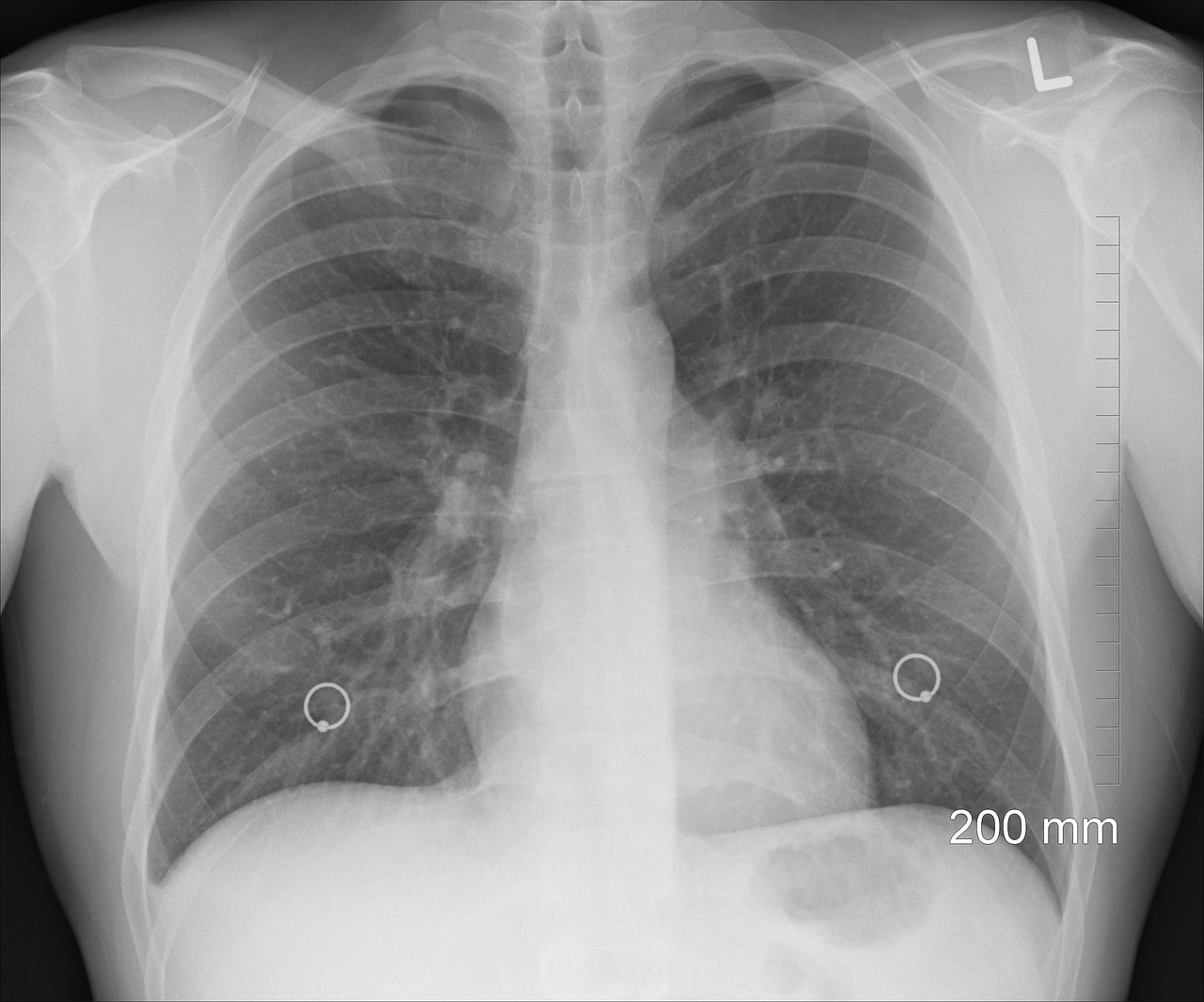
The Illusion of Choice
When we talk about human trafficking, one of the most disturbing aspects is the illusion of choice that many victims experience. Imagine being presented with what seems like a golden opportunity, only to find out that the reality is far more sinister. Victims often believe they have made a choice, but in truth, their decisions are heavily influenced by external pressures and circumstances that are beyond their control. This manipulation creates a façade that can be incredibly difficult to see through, even for those who are living it.
Socioeconomic factors play a pivotal role in this illusion. Individuals living in poverty may feel they have no choice but to accept offers that promise a better life, whether it's a job opportunity in another country or a chance to escape their current situation. In many cases, these offers are deliberately misleading. For instance, traffickers may advertise jobs that do not exist or promise education and better living conditions, all while hiding the true nature of their intentions.
To illustrate this point, consider the following scenarios:
| Scenario | Perceived Choice | Reality |
|---|---|---|
| Job Offer Abroad | Opportunity for higher wages | Forced labor and exploitation |
| Marriage Proposal | Path to a better life | Domestic servitude or sexual exploitation |
| Educational Scholarship | Chance to study | Debt bondage and trafficking |
This table highlights how the perception of choice can be manipulated by traffickers. The victims, often desperate for a way out of their circumstances, may not realize that they are being led into a trap. This manipulation raises profound ethical questions about agency and victimhood. Are these individuals truly making choices, or are they merely pawns in a game they never wanted to play?
Moreover, the illusion of choice is compounded by societal perceptions. Many people view victims of trafficking as having made poor decisions, failing to recognize the complex web of coercion and desperation that leads to such situations. This societal blame not only stigmatizes victims but also diverts attention from the systemic issues that allow trafficking to thrive.
In conclusion, understanding the illusion of choice is crucial in addressing the moral implications of human trafficking. It underscores the need for a more compassionate approach that recognizes the vulnerabilities of individuals and the manipulative tactics used by traffickers. By shining a light on these issues, we can begin to dismantle the structures that perpetuate this global crisis.
- What is human trafficking? - Human trafficking is the illegal trade of people for exploitation or commercial gain.
- How can I identify a victim of human trafficking? - Signs include lack of control over personal documents, signs of physical abuse, and a fearful demeanor.
- What can I do to help combat human trafficking? - Raising awareness, supporting local NGOs, and reporting suspicious activities are effective ways to help.

The Impact of Vulnerability
Vulnerability is a significant factor that contributes to the prevalence of human trafficking. It’s often said that "desperation is the mother of exploitation," and this rings particularly true in the context of trafficking. Individuals who find themselves in precarious situations—whether due to poverty, lack of education, or even political instability—are far more susceptible to being targeted by traffickers. Imagine standing on the edge of a cliff, where one wrong step can lead you into a dark abyss. For many, this is the reality they face daily, and traffickers are all too eager to exploit this precariousness.
Those who live in impoverished conditions often see trafficking as a way out, a misguided opportunity for a better life. This is where the illusion of choice comes into play. Victims may believe they are making informed decisions, but in reality, they are often pushed into these situations by circumstances beyond their control. The manipulation of vulnerability is a cruel tactic used by traffickers, who prey on individuals' hopes and dreams, twisting them into instruments of exploitation.
In many cases, the vulnerable individuals are not just economically disadvantaged; they may also lack access to essential resources such as education, healthcare, and social support systems. This lack of support creates a fertile ground for traffickers to operate. For instance, a young girl in a rural area, unable to pursue education due to financial constraints, might be lured into a trafficking situation under the guise of a job offer. The traffickers exploit her dreams of a better future, turning them into a nightmare.
Moreover, the impact of vulnerability is not limited to economic factors. Psychological and emotional vulnerabilities also play a crucial role. Victims may have experienced trauma, abuse, or neglect, making them more susceptible to manipulation. Traffickers often use psychological tactics to gain control over their victims, creating a dependency that is hard to break. This emotional stranglehold can trap individuals in a cycle of exploitation, making it incredibly difficult for them to escape.
To understand the full impact of vulnerability on human trafficking, consider the following key points:
- Poverty: Individuals living in poverty are often forced to make desperate choices, making them prime targets for traffickers.
- Lack of Education: Without education, individuals may not recognize the dangers of trafficking or have the skills to seek better opportunities.
- Social Isolation: Those who lack a supportive community are more likely to fall prey to traffickers, as they may not have anyone to turn to for help.
- Psychological Factors: Past trauma can make individuals more vulnerable, as they may seek love or acceptance in unsafe situations.
In conclusion, addressing the vulnerabilities that lead to human trafficking is essential in the fight against this global crisis. By understanding the multifaceted nature of vulnerability, we can create more effective prevention strategies that empower individuals and protect them from exploitation. It’s not just about saving lives; it’s about restoring dignity and hope to those who have been ensnared in the web of trafficking.
- What are the primary factors that contribute to human trafficking? The primary factors include poverty, lack of education, social isolation, and psychological vulnerabilities.
- How can communities help prevent human trafficking? Communities can raise awareness, support education initiatives, and provide resources for vulnerable populations.
- What role do governments play in combating human trafficking? Governments can implement effective legislation, provide funding for anti-trafficking programs, and foster international cooperation.
- How can individuals support victims of human trafficking? Individuals can volunteer with NGOs, donate to organizations that support victims, and educate themselves and others about the issue.

The Responsibility of Society
When we talk about human trafficking, it's easy to think of it as a distant issue, something that happens far away from our comfortable lives. But the truth is, human trafficking is a societal problem that concerns us all. Each one of us has a role to play in combating this heinous crime. So, what does it mean for society to take responsibility? It means recognizing that we are all interconnected, and that the plight of the victim is a reflection of our collective moral fiber.
First and foremost, we must acknowledge that awareness is key. Many people are simply unaware of the signs of trafficking or the realities faced by victims. By fostering an environment of education and understanding, we can empower individuals to recognize and report suspicious activities. Community workshops, school programs, and social media campaigns can serve as effective tools in this educational effort. For instance, local organizations can host events to inform citizens about the risks and signs of trafficking, encouraging them to become vigilant and proactive.
Moreover, our communities need to create a culture of support and empathy for victims. This can be achieved by establishing safe spaces where survivors can seek help without fear of judgment or retribution. When society stands in solidarity with victims, it sends a powerful message that we will not tolerate exploitation. This could involve everything from offering counseling services to creating job opportunities for survivors, helping them reintegrate into society and regain their independence.
Additionally, the responsibility extends to our local governments. They must implement policies that not only address human trafficking but also tackle the root causes that make individuals vulnerable to exploitation. This includes investing in education, economic development, and social services. When communities are equipped with resources, they become less susceptible to the manipulations of traffickers. For example, a community with access to quality education and job training programs is less likely to see its members fall prey to trafficking schemes.
In this context, we must also consider the role of businesses. Companies can contribute to the fight against human trafficking by ensuring that their supply chains are free from exploitation. This means conducting thorough audits and maintaining transparency about their sourcing practices. Consumers, too, have a responsibility to demand ethical practices from the brands they support. By choosing to buy from companies that prioritize human rights, we can collectively push for change in the marketplace.
Ultimately, tackling human trafficking requires a collaborative effort. It’s not just the responsibility of law enforcement or NGOs; it’s a shared duty that involves every segment of society. By coming together—individuals, communities, businesses, and governments—we can create a formidable front against this global crisis. The fight against human trafficking is not just about saving individuals; it’s about preserving our humanity.
As we reflect on our roles, let’s ask ourselves: What can I do today to contribute to the fight against human trafficking? Whether it’s educating ourselves, supporting local organizations, or advocating for policy changes, every action counts. Together, we can build a society that stands firmly against exploitation and champions the rights of every individual.
- What can I do to help combat human trafficking?
Start by educating yourself and others about the signs of trafficking. Support local organizations that assist victims and advocate for policy changes. - How can businesses contribute to the fight against human trafficking?
Businesses can ensure their supply chains are free from exploitation by conducting audits and promoting ethical sourcing practices. - What role does the government play in addressing human trafficking?
Governments can implement policies that tackle the root causes of trafficking, such as poverty and lack of education, while also providing resources for victim support.
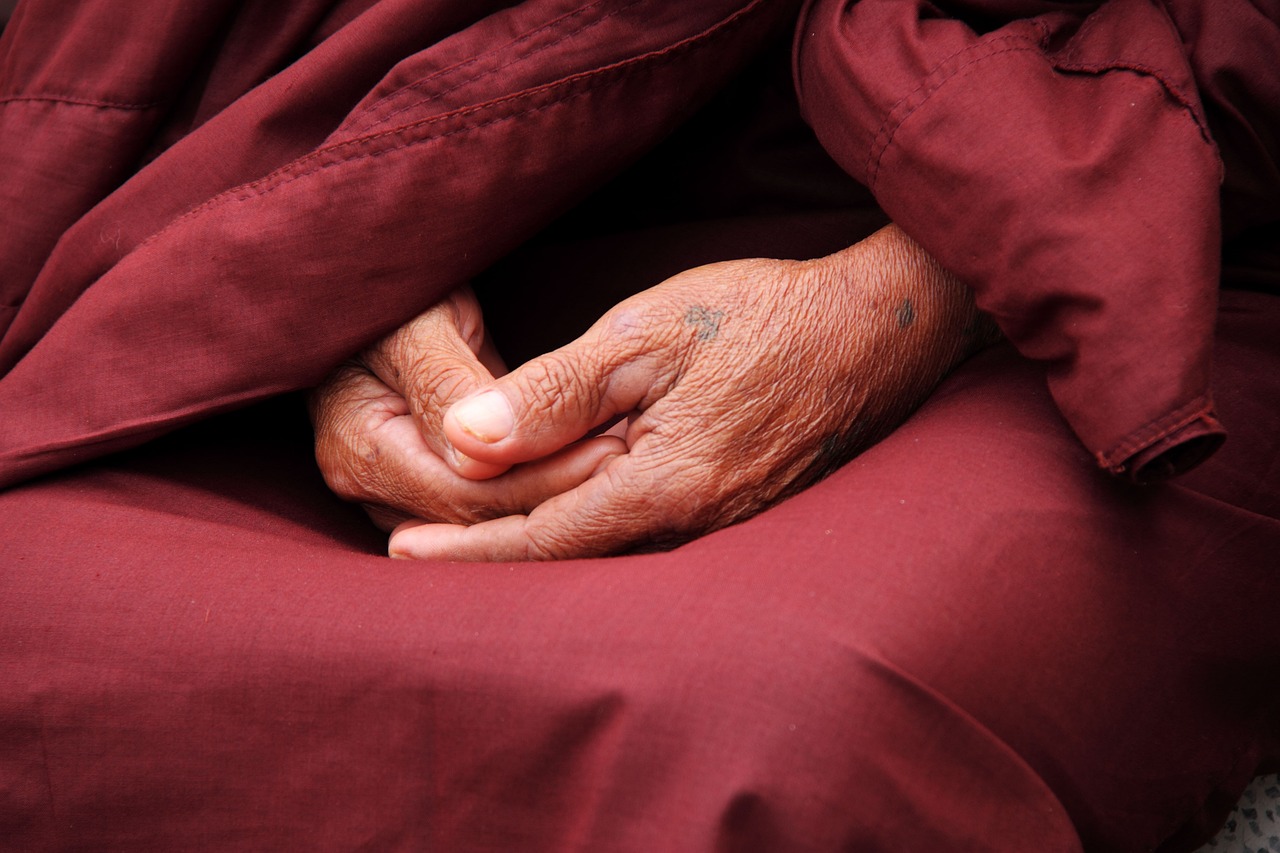
The Role of Legislation and Policy
When it comes to combating human trafficking, legislation and policy play a crucial role. They serve as the backbone of any effective strategy aimed at eradicating this global crisis. Laws not only establish the legal framework for prosecuting traffickers but also provide essential protections for victims. However, the effectiveness of these laws often hinges on their implementation and enforcement. Without proper execution, even the most well-intentioned policies can fall flat, leaving victims vulnerable and perpetrators unpunished.
Countries around the world have made strides in developing legislation to address human trafficking. For instance, many nations have adopted laws that criminalize trafficking and impose severe penalties on offenders. However, there are still significant gaps in these laws. Many jurisdictions lack comprehensive definitions of trafficking that encompass all its forms, including labor trafficking and sex trafficking. This ambiguity can lead to inconsistent enforcement and a failure to protect victims adequately.
Moreover, the ethical considerations surrounding legislation are profound. It is not merely about creating laws; it is about ensuring that these laws are just and equitable. Victim protection must be at the forefront of any legal framework. This includes providing victims with access to legal resources, psychological support, and rehabilitation services. Unfortunately, many existing laws do not prioritize these aspects, leaving victims to navigate a complex legal system without adequate support.
Another critical element of effective legislation is international cooperation. Human trafficking knows no borders, and thus, the fight against it requires a unified global approach. Countries must work together to share intelligence, coordinate law enforcement efforts, and support victims across borders. International treaties, such as the United Nations Protocol to Prevent, Suppress and Punish Trafficking in Persons, provide a foundation for these collaborative efforts. However, the ethical obligation to protect victims and prosecute traffickers transcends national boundaries and demands a collective response.
To illustrate the impact of legislation, consider the following table that outlines the key elements of effective anti-trafficking laws:
| Key Element | Description |
|---|---|
| Clear Definitions | Comprehensive definitions of trafficking that include all forms and contexts. |
| Victim Protection | Access to legal aid, rehabilitation, and support services for victims. |
| Severe Penalties | Imposing significant penalties on traffickers to deter criminal activity. |
| International Collaboration | Agreements and partnerships between countries to combat trafficking effectively. |
| Awareness and Training | Programs for law enforcement and the public to recognize and respond to trafficking. |
In conclusion, the role of legislation and policy in combating human trafficking is multifaceted and complex. It requires a delicate balance between enforcement and protection, ensuring that the rights of victims are upheld while holding traffickers accountable. As society continues to grapple with this issue, it is imperative that we advocate for stronger, more effective laws that reflect our ethical obligations to protect the most vulnerable among us.
- What is human trafficking? Human trafficking is the illegal trade of humans for the purposes of forced labor, sexual exploitation, or other forms of exploitation.
- How can legislation help combat human trafficking? Legislation can provide a legal framework for prosecuting traffickers, protecting victims, and promoting awareness and prevention efforts.
- Why is international cooperation important? Human trafficking is a global issue that requires countries to work together to effectively combat it and support victims across borders.
- What should effective anti-trafficking laws include? Effective laws should include clear definitions of trafficking, victim protection measures, severe penalties for traffickers, and provisions for international collaboration.
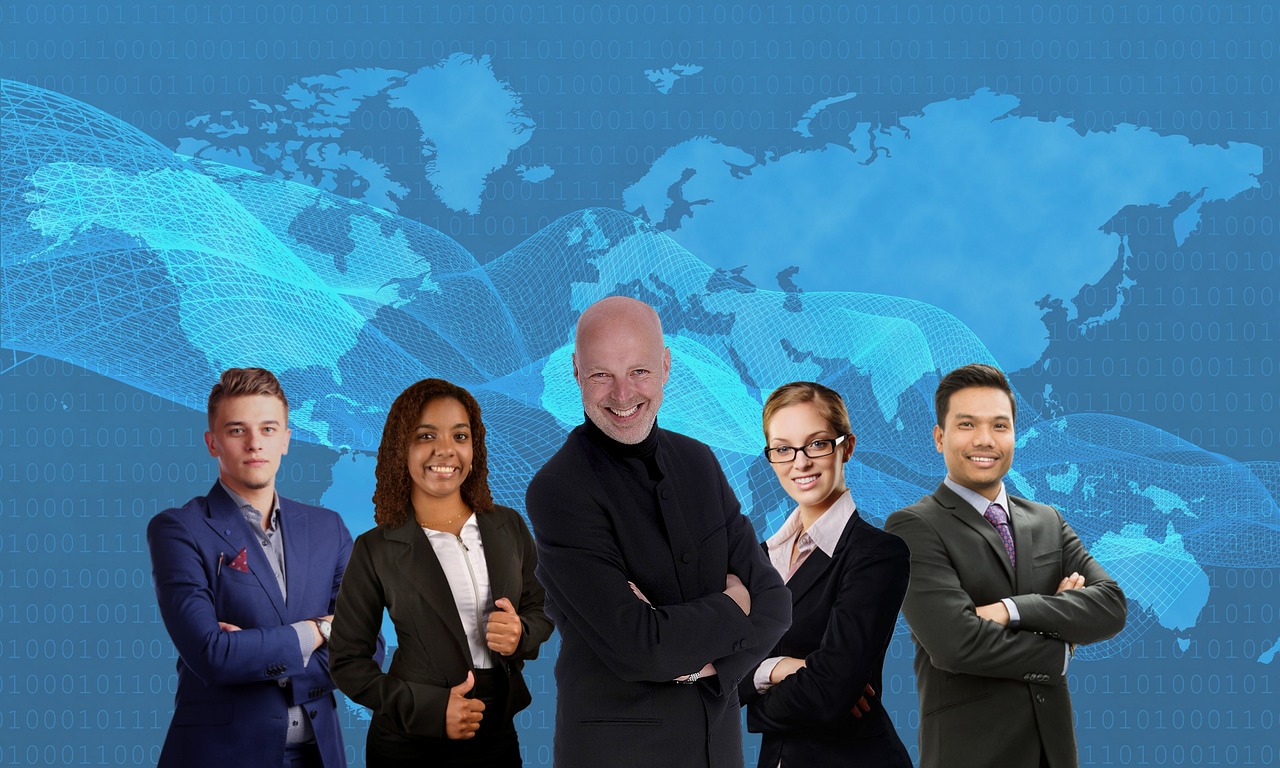
The Importance of International Cooperation
When it comes to tackling the complex issue of human trafficking, one thing is crystal clear: no country can fight this battle alone. Human trafficking is a global crisis that transcends borders, cultures, and legal systems. It’s a web of exploitation that connects victims from one part of the world to traffickers operating in another. This is why international cooperation is not just important; it’s absolutely essential. Countries must join forces to create a unified front against this heinous crime.
Imagine trying to solve a jigsaw puzzle where the pieces are scattered across different countries. Each piece represents a different aspect of trafficking—victims, traffickers, legal frameworks, and social attitudes. Without collaboration, it’s nearly impossible to see the full picture. International cooperation allows for the sharing of intelligence, resources, and best practices, creating a comprehensive strategy that can effectively combat trafficking.
One of the key benefits of international cooperation is the ability to establish common legal frameworks. Different countries have varying laws and penalties regarding trafficking, which can create loopholes that traffickers exploit. By harmonizing laws, nations can ensure that traffickers face significant consequences regardless of where they operate. This requires not just agreement on legal definitions but also on enforcement practices. For instance, countries can work together to provide training for law enforcement agencies, equipping them with the necessary skills to identify and combat trafficking effectively.
Furthermore, international cooperation fosters a more robust support system for victims. Victims of human trafficking often find themselves in unfamiliar environments, lacking the language skills or cultural knowledge to seek help. By collaborating, countries can create networks that support victims across borders. This includes establishing safe havens, offering psychological support, and providing legal assistance to help victims reintegrate into society. A victim-centered approach is vital, and it thrives on collaboration.
However, the road to effective international cooperation is fraught with challenges. Differences in political will, resource allocation, and even cultural attitudes toward trafficking can hinder progress. To overcome these obstacles, countries must prioritize building trust and fostering open dialogue. Regular international conferences and workshops can serve as platforms for sharing success stories and strategies, ultimately strengthening the global fight against trafficking.
In conclusion, the fight against human trafficking is not a solitary endeavor. It’s a collective responsibility that requires nations to come together, share their resources, and create a united front. As we work towards a world free from trafficking, let’s remember that collaboration is key. The more we cooperate, the closer we get to dismantling the networks that perpetuate this crime and supporting those affected by it.
- What is human trafficking? Human trafficking is the illegal trade of humans for the purposes of forced labor, sexual exploitation, or other forms of exploitation.
- Why is international cooperation important in fighting human trafficking? Because trafficking is a global issue that crosses borders, countries must work together to share resources, intelligence, and best practices to effectively combat it.
- How can countries harmonize their laws regarding human trafficking? Countries can collaborate to establish common legal definitions and penalties, ensuring that traffickers face consequences no matter where they operate.
- What role do NGOs play in combating human trafficking? NGOs provide vital support services to victims, raise awareness, and advocate for policy changes to strengthen the fight against trafficking.

Challenges in Law Enforcement
When it comes to combating human trafficking, law enforcement agencies face a myriad of challenges that complicate their efforts. One significant hurdle is the **lack of resources**. Many police departments are underfunded and overworked, which can lead to insufficient training on the complexities of trafficking cases. Imagine trying to tackle a massive puzzle with only a few pieces; that's what it feels like for law enforcement when they lack the necessary tools and knowledge to address this issue effectively.
Moreover, the **hidden nature** of human trafficking makes it particularly difficult to detect. Victims often live in the shadows, coerced into silence by their traffickers. This secrecy means that law enforcement must rely heavily on tips from the community, which can be sparse. Victims may not even recognize themselves as such, believing they have willingly entered their situations. As a result, police may struggle to identify and assist those who need help the most.
Another challenge is the **complex legal landscape** surrounding human trafficking. Laws can vary significantly from one jurisdiction to another, leading to confusion and inconsistencies in enforcement. For instance, a trafficker might exploit loopholes in the law, making it difficult for authorities to build a solid case against them. This complexity can lead to frustration for law enforcement officials who are eager to help but find their hands tied by legal limitations.
Furthermore, there is a pressing need for **inter-agency collaboration**. Human trafficking often crosses local, state, and even national borders, requiring a coordinated response from various law enforcement agencies. However, differing priorities and communication barriers can hinder effective collaboration. For example, a local police department may not have the same resources or urgency as a federal agency, leading to gaps in the overall response to trafficking.
In addition to these challenges, there is the ethical dilemma of **victim treatment**. Law enforcement must balance the need to protect victims while simultaneously pursuing traffickers. This can lead to situations where victims are treated as suspects rather than individuals in need of help. A compassionate approach is essential, yet it can be difficult to achieve in a system that often prioritizes arrests and prosecutions over rehabilitation and support.
To address these challenges, law enforcement agencies must prioritize comprehensive training programs focused on recognizing the signs of trafficking and understanding the complexities involved. Additionally, fostering partnerships with non-governmental organizations (NGOs) can enhance their ability to support victims and gather intelligence on trafficking networks. By creating a more informed and collaborative environment, law enforcement can significantly improve their effectiveness in combating this heinous crime.
- What is human trafficking? Human trafficking is the illegal trade of people for the purposes of forced labor, sexual exploitation, or other forms of exploitation.
- What are the signs of human trafficking? Signs may include individuals appearing fearful, submissive, or showing signs of physical abuse, as well as lacking basic necessities and not having control over their own identification documents.
- How can I report suspected human trafficking? If you suspect someone is a victim of human trafficking, you can report it to local law enforcement or call the National Human Trafficking Hotline at 1-888-373-7888.
- What role do NGOs play in combating human trafficking? NGOs provide vital services such as victim support, advocacy, and education, working alongside law enforcement to combat trafficking effectively.
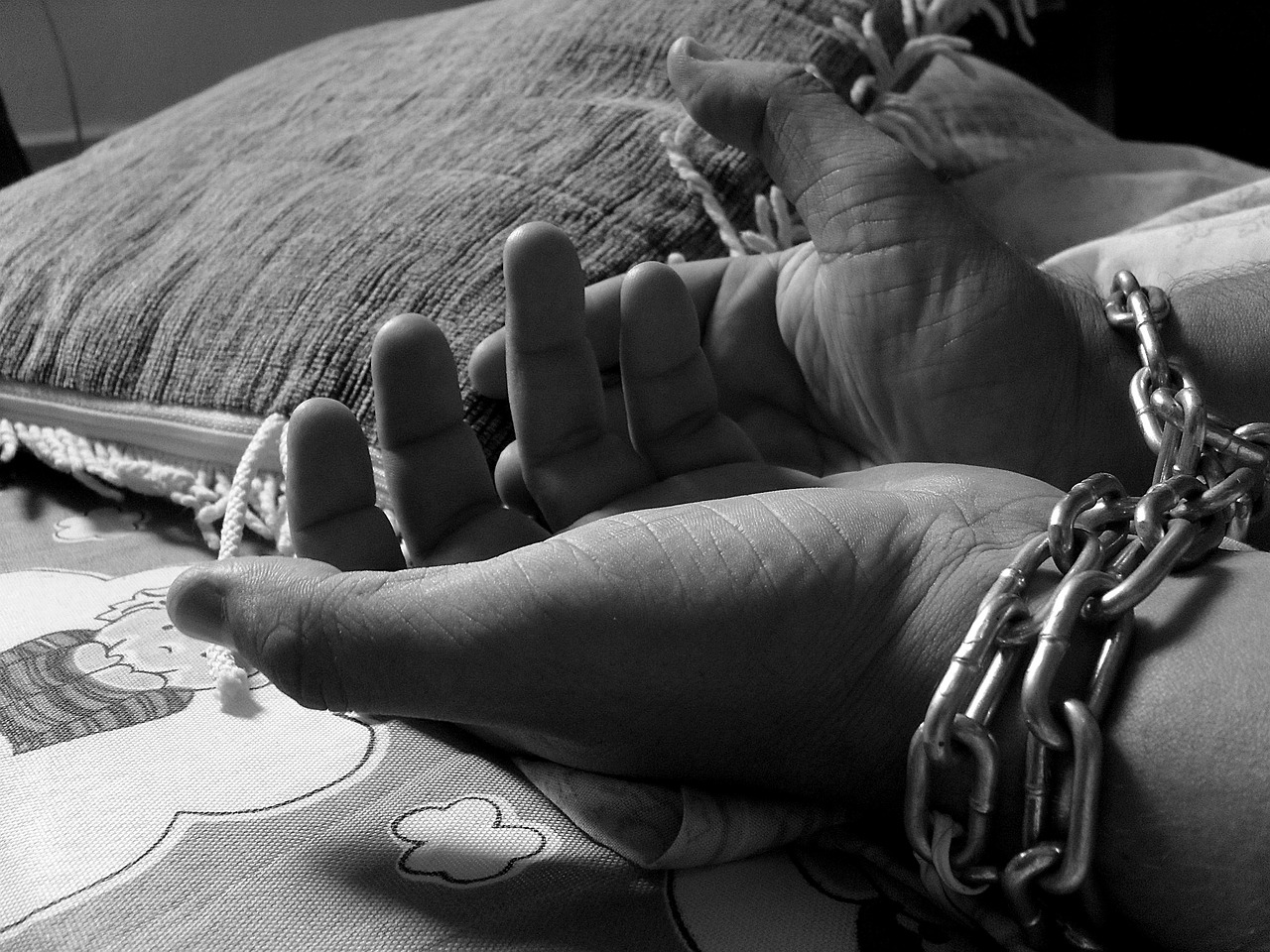
Education and Awareness as Solutions
When it comes to combating human trafficking, education and awareness emerge as some of the most powerful tools in our arsenal. Imagine a world where every individual knows the signs of trafficking and understands the resources available to help victims. It’s not just a dream; it’s a necessity. By educating communities, we can create a protective barrier that helps to prevent individuals from falling prey to traffickers. This proactive approach can significantly reduce the number of people who become victims of this heinous crime.
Education plays a multifaceted role in this battle. First and foremost, it empowers individuals with knowledge about their rights and the dangers they might face. Schools, community centers, and even online platforms can serve as vital spaces for disseminating this information. For instance, educational programs can cover topics such as:
- Understanding human trafficking and its various forms
- Recognizing the signs of exploitation
- Knowing how to report suspicious activities
- Accessing support services for victims
Moreover, raising awareness about the social and economic factors that contribute to trafficking is equally important. Many people are unaware that poverty, lack of education, and social isolation are significant risk factors that traffickers exploit. By highlighting these issues, we can foster a more empathetic society that understands the complexities of trafficking and the vulnerabilities that lead to it.
Community engagement is another crucial element in the fight against human trafficking. When communities come together to share information and resources, they create a network of support that can effectively combat trafficking. Local organizations, schools, and families can collaborate to host workshops, seminars, and awareness campaigns. These initiatives can help to break the stigma associated with trafficking and encourage open discussions about the issue.
Furthermore, we must not overlook the role of technology in education and awareness. With the rise of social media and digital platforms, we have the opportunity to reach a broader audience than ever before. Online campaigns can disseminate vital information quickly and efficiently, engaging younger generations who are often more connected than any other demographic. For example, interactive online courses and webinars can provide essential training on recognizing and preventing trafficking.
To truly make a difference, it’s essential to involve various stakeholders in the educational process. Governments, NGOs, and community leaders must collaborate to develop comprehensive educational programs that address the unique needs of different populations. By tailoring these programs to specific communities, we can ensure that the information is relevant and impactful.
In conclusion, education and awareness are not just solutions; they are the foundation upon which we can build a future free from human trafficking. By empowering individuals, fostering community engagement, and leveraging technology, we can create a world where trafficking is no longer tolerated. The fight against human trafficking is a collective effort, and it starts with informed, aware, and engaged communities.
Q: How can I identify signs of human trafficking?
A: Signs may include individuals who appear to be under control by someone else, lack of personal identification, or those who show signs of fear or anxiety. If you suspect someone is a victim, it's crucial to report it to local authorities.
Q: What can I do to help prevent human trafficking?
A: You can help by educating yourself and others about the issue, supporting local organizations that work to combat trafficking, and advocating for stronger laws and policies.
Q: Are there specific programs dedicated to educating communities about human trafficking?
A: Yes, many NGOs and community organizations offer workshops and training sessions aimed at raising awareness about human trafficking and its prevention.

Empowering Vulnerable Communities
Empowering vulnerable communities is not just a noble endeavor; it's a necessity in the fight against human trafficking. When we talk about vulnerable communities, we're often referring to those who face significant socioeconomic challenges, such as poverty, lack of education, and limited access to resources. These factors create an environment ripe for exploitation, making it crucial to address the root causes of vulnerability.
Imagine a world where every individual has access to quality education and stable employment opportunities. In such a world, the allure of traffickers would diminish significantly. Empowerment means equipping individuals with the tools they need to make informed choices, thus reducing their susceptibility to exploitation. This can be achieved through various means, including educational programs that teach essential skills, job training initiatives, and community support networks.
For instance, educational initiatives can provide young people with knowledge about their rights and the dangers of trafficking. By fostering awareness, we can create a generation that is less likely to fall victim to traffickers. Job training programs can also play a pivotal role by offering practical skills that enhance employability. When individuals can secure stable jobs, they are less likely to be lured into dangerous situations.
Moreover, community support networks can serve as a safety net for those at risk. These networks can include local NGOs, social services, and even community leaders who work together to provide resources and support to vulnerable individuals. By creating a strong sense of community, we can instill hope and resilience, making it harder for traffickers to prey on those who feel isolated and desperate.
To illustrate the impact of empowerment, consider the following table that outlines the benefits of community empowerment initiatives:
| Empowerment Initiative | Benefits |
|---|---|
| Educational Programs | Increased awareness of rights, reduced vulnerability to traffickers |
| Job Training | Improved employability, financial independence |
| Community Support Networks | Enhanced social ties, emotional support, access to resources |
In essence, empowering vulnerable communities is about creating a robust framework that not only protects individuals but also nurtures their potential. It's about transforming lives by providing opportunities and fostering a sense of belonging. When communities are empowered, they become resilient against the threats of human trafficking, and this collective strength can ripple outwards, influencing broader societal change.
In conclusion, the fight against human trafficking requires a multifaceted approach, and empowering vulnerable communities is a cornerstone of this strategy. By investing in education, job training, and community support, we can build a future where exploitation is no longer an option. Together, we can create a world where everyone has the opportunity to thrive, free from the shackles of trafficking.
- What are the main causes of human trafficking? Human trafficking is primarily driven by poverty, lack of education, and social instability, which create environments where individuals are vulnerable to exploitation.
- How can communities help prevent human trafficking? Communities can help by raising awareness, providing education and job training, and establishing support networks for at-risk individuals.
- What role do NGOs play in combating human trafficking? NGOs are crucial in providing resources, support, and advocacy for victims, as well as working to empower vulnerable populations.
- How can I get involved in the fight against human trafficking? You can get involved by supporting local organizations, volunteering your time, or educating others about the issue.

The Role of Non-Governmental Organizations
Non-Governmental Organizations (NGOs) play a crucial role in the fight against human trafficking. These organizations serve as the frontline defenders, providing essential services to victims, raising awareness, and advocating for policy changes. They are often the first point of contact for individuals who have been exploited, offering them a lifeline in their darkest moments. From shelters to legal assistance, NGOs are equipped to address the multifaceted needs of trafficking survivors.
One of the most significant contributions of NGOs is their ability to operate in areas where governmental resources may be limited. They often fill the gaps left by public institutions, ensuring that victims receive the necessary support. For instance, NGOs can provide psychological counseling, medical care, and educational opportunities that empower survivors to rebuild their lives. Without these resources, many victims would remain trapped in a cycle of exploitation, unable to escape their circumstances.
Moreover, NGOs are pivotal in raising awareness about human trafficking at the community level. Through educational programs, outreach initiatives, and public campaigns, they inform individuals about the signs of trafficking and how to report it. This grassroots approach not only helps in identifying victims but also fosters a culture of vigilance and responsibility within communities. By engaging local populations, NGOs create a network of support that can deter traffickers and protect vulnerable individuals.
Collaboration is another key aspect of how NGOs operate. They often work alongside local authorities, law enforcement, and international bodies to create a comprehensive strategy against trafficking. This collaboration can take various forms, including:
- Training law enforcement: NGOs provide essential training to police and other officials on recognizing and responding to trafficking cases.
- Policy advocacy: They lobby for stronger laws and protections for victims, ensuring that their voices are heard in legislative processes.
- Resource sharing: NGOs often share best practices and resources with one another, enhancing the overall effectiveness of the anti-trafficking movement.
Despite their significant contributions, NGOs face numerous challenges in their work. Funding is often inconsistent, and many organizations operate on shoestring budgets, relying heavily on donations and grants. Additionally, the stigma surrounding trafficking can hinder their efforts, making it difficult to engage communities effectively. Nevertheless, the resilience and dedication of these organizations are commendable and essential in the ongoing battle against human trafficking.
In conclusion, NGOs are not just service providers; they are advocates, educators, and community builders. Their ethical commitment to helping trafficking victims and preventing future exploitation is an invaluable asset in addressing this global crisis. As we continue to confront the realities of human trafficking, it is imperative that we support and recognize the vital work of NGOs in this field.
Frequently Asked Questions
- What is human trafficking?
Human trafficking is a serious crime that involves the exploitation of individuals through force, fraud, or coercion. It can take many forms, including sexual exploitation, forced labor, and involuntary servitude. Victims can be men, women, and children from various backgrounds, making it a complex and pervasive issue globally.
- What are the ethical dilemmas associated with human trafficking?
Human trafficking presents numerous ethical dilemmas, such as the issues of consent and exploitation. Many victims may believe they have made a choice, but often, their decisions are manipulated by traffickers who exploit their vulnerabilities. This raises critical questions about agency, moral responsibility, and the complicity of society in allowing such injustices to occur.
- How does society play a role in combating human trafficking?
Society has a collective responsibility to combat human trafficking. This includes raising awareness, supporting victims, and advocating for stronger laws and policies. Individuals, communities, and governments must work together to create an environment that prevents trafficking and protects those at risk.
- What legislation exists to address human trafficking?
Various laws and policies exist at both national and international levels to combat human trafficking. These laws are designed to protect victims, prosecute traffickers, and prevent trafficking from occurring. However, the effectiveness of these laws often depends on enforcement and the commitment of governments to address the issue comprehensively.
- Why is international cooperation important in fighting human trafficking?
Human trafficking is a global issue that transcends borders, making international cooperation essential. Countries must work together to share information, resources, and best practices to effectively combat trafficking and support victims. Collaborative efforts can lead to a more unified approach to tackling this complex problem.
- What challenges do law enforcement agencies face in addressing human trafficking?
Law enforcement agencies encounter various challenges, including limited resources, lack of training, and the complexities of trafficking networks. These challenges can hinder their ability to effectively investigate and prosecute traffickers, raising ethical concerns about the protection of victims and the accountability of perpetrators.
- How can education and awareness help prevent human trafficking?
Education and awareness are crucial in preventing human trafficking. By informing communities about the signs of trafficking and the tactics used by traffickers, individuals can better protect themselves and others. Community engagement initiatives can empower vulnerable populations and create a collective effort to combat trafficking.
- What role do non-governmental organizations (NGOs) play in addressing human trafficking?
NGOs play a vital role in the fight against human trafficking by providing support services to victims, raising awareness, and advocating for policy changes. They often collaborate with local communities and authorities to implement effective programs that address the root causes of trafficking and empower individuals at risk.


